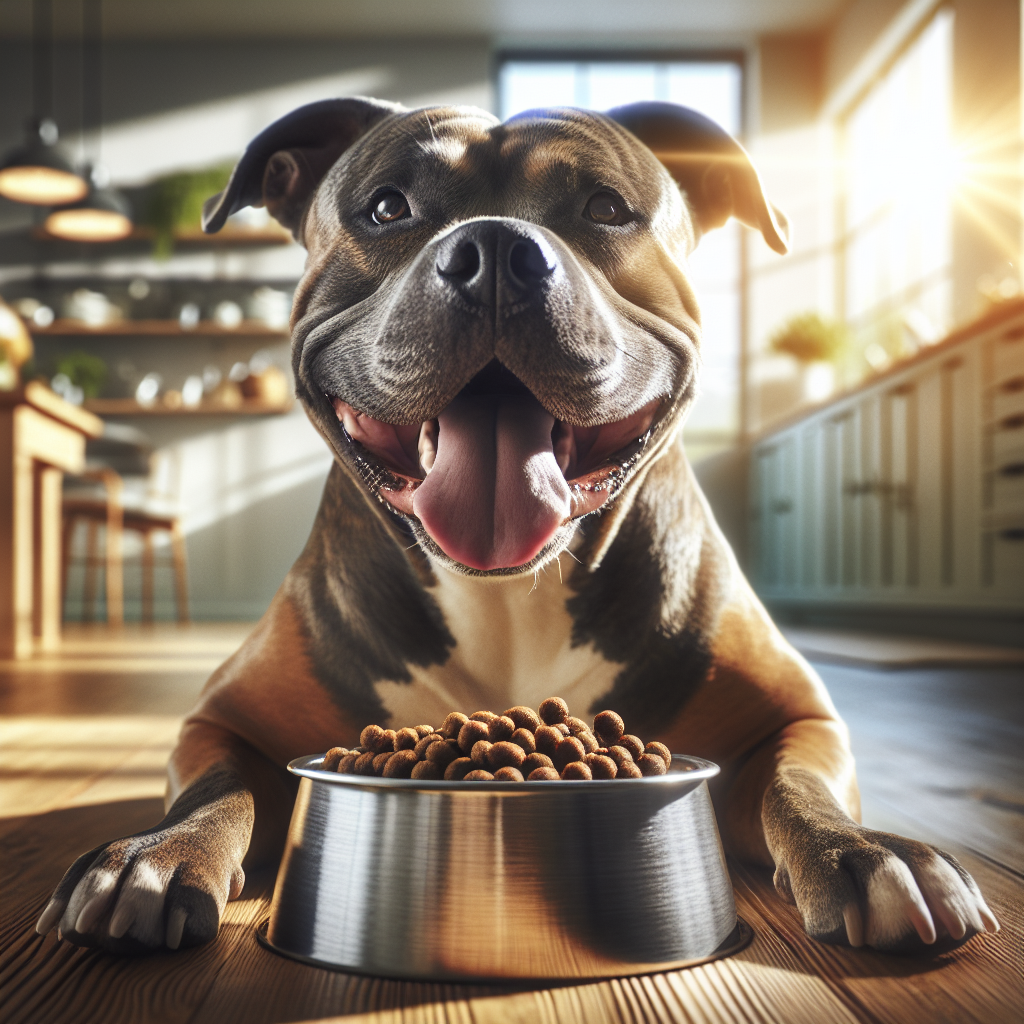Best Dog Food for Pitbulls with Skin Allergies
When it comes to choosing the right nutrition for your pitbull with skin allergies, the task can seem daunting. Skin allergies are common in pitbulls and can result in discomfort and irritation.
Luckily, the right dog food can play a significant role in alleviating these symptoms. In this article, we will explore the best dog food options for pitbulls with skin allergies, highlighting key ingredients, benefits, pros and cons, alongside a comparative analysis of popular brands.
Understanding Skin Allergies in Pitbulls
Skin allergies in pitbulls can be triggered by various factors, including environmental allergens, fleas, and food sensitivities. When these allergens make contact with your dog's skin, they can cause itching, redness, and even hair loss. A balanced diet with the right ingredients can help manage these allergies by boosting your pitbull's immune system and reducing inflammation.
Key Ingredients for Managing Skin Allergies
- Omega-3 Fatty Acids: These are known for their anti-inflammatory properties, which help maintain healthy skin and a glossy coat.
- High-Quality Protein Sources: Essential for muscle development and overall health, focusing on hypoallergenic options like fish, lamb, or venison.
- Probiotics and Prebiotics: Promote a healthy gut microbiome and improve digestion, which can help manage skin allergies.
- Limited Ingredient Formulas: Using a single source of animal protein with a few select carbohydrates to minimize allergic reactions.
- Antioxidants: Found in fruits and vegetables, these boost the immune system and support overall health.
Benefits of the Right Dog Food
Choosing the right dog food can offer several benefits for pitbulls with skin allergies:
- Reduced Skin Irritation: Minimizes itching and discomfort, promoting a happier and more comfortable dog.
- Improved Coat Health: Results in a shinier, healthier, and softer coat, thanks to Omega-3 Fatty Acids.
- Better Digestive Health: Enhanced nutrient absorption supports overall well-being and energy levels.
- Stronger Immune System: Antioxidants help your pitbull fight off allergens effectively.
- Weight Management: High-quality protein sources ensure your dog maintains healthy weight and muscle health.
Pros and Cons of Dog Food Options
Pros
- High Omega-3 Fatty Acids: Promotes healthy coat and skin.
- Rich in High-Quality Protein: Supports muscle development and overall health.
- Contains Probiotics and Prebiotics: Improves digestion and gut health.
- Limited Ingredient Formulas: Reduces the risk of allergic reactions.
- Antioxidants Support: Strengthens the immune system.
Cons
- Limited Availability in some regions.
- Higher Price Point compared to standard dog foods.
- Taste Preferences may vary among dogs.
- Restrictive Formulas might not appeal to all dog owners.
- Nutritional Content Variations require careful monitoring.
Comparative Analysis of Dog Food Brands
- Blue Buffalo Basics Limited Ingredient Diet
- Pros: High-quality protein, limited ingredients, includes Omega-3 Fatty Acids.
- Cons: High price, limited availability.
- Taste of the Wild Pacific Stream Grain-Free Dog Food
- Pros: Fish protein, rich in Omega-3, supports skin and coat health.
- Cons: Taste may not suit all dogs, limited ingredient formulas.
- Wellness Simple Limited Ingredient Diet
- Pros: Variety of formulas, high-quality protein, added vitamins and minerals.
- Cons: Higher price, may contain common allergens.
- Earthborn Holistic Venture Grain-Free Dog Food
- Pros: Novel protein sources, includes antioxidants from fruits and vegetables.
- Cons: Not widely available, restrictive ingredient options.
- Royal Canin Veterinary Diet Hydrolyzed Protein
- Pros: Formulated for food sensitivities, reduces allergic reactions.
- Cons: Requires prescription, higher price point.
Frequently Asked Questions (FAQ)
What causes skin allergies in pitbulls, and how can diet help manage them?
Skin allergies in pitbulls can be caused by food ingredients, environmental factors, or flea bites. A diet rich in anti-inflammatory ingredients like Omega-3 Fatty Acids and limited allergens can help manage and reduce symptoms.
How to choose the best dog food for pitbulls with skin allergies?
Look for foods with limited ingredients, high-quality protein sources, Omega-3 Fatty Acids, probiotics, and antioxidants. Consult with your vet for tailored advice.
Can I switch my pitbull's food if they have skin allergies, and how should I do it?
Yes, you can switch their food gradually over 7-10 days, mixing increasing amounts of the new food with their current diet to allow their digestive system to adjust.
What are the common signs of a dog food allergy in pitbulls?
Common signs include itching, red skin, ear infections, and gastrointestinal issues like diarrhea or vomiting.
Are there any home remedies or supplements that can aid in managing pitbull skin allergies?
Supplements like Omega-3 Fatty Acid capsules, coconut oil, and baths with hypoallergenic shampoos can help soothe irritated skin.
How long will it take to see improvements in my pitbull's skin and coat after switching to a new diet?
Improvements can often be seen within a few weeks, but it may take up to 12 weeks for full effects.
Is grain-free dog food a better choice for pitbulls with skin allergies?
Not necessarily. While some dogs benefit from grain-free diets, it's important to focus on hypoallergenic ingredients and consult with your vet.
How often should I feed my pitbull with skin allergies, and in what portion sizes?
Feed according to the package instructions or your vet's advice, typically twice daily. Portion sizes depend on your pitbull's age, weight, and activity level.
Can environmental factors contribute to skin allergies in pitbulls, and how can they be managed?
Yes, environmental factors like pollen and dust mites can contribute. Regular grooming, cleaning your dog's environment, and allergy medications can help manage these allergies.
For more tips and a comprehensive list of the best dog food options for pitbulls with skin allergies, visit Find Food For Dog.









